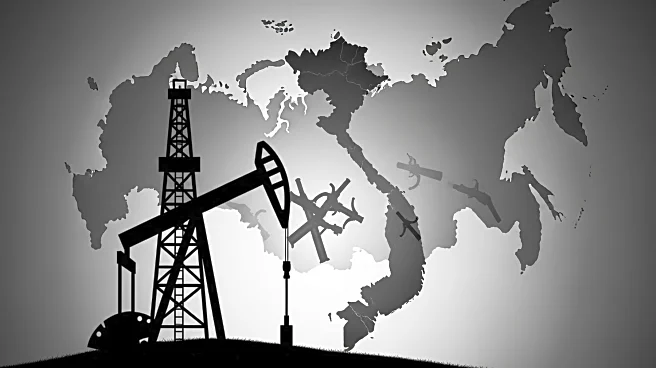What's Happening?
Russia and Vietnam have devised a method to bypass US sanctions on arms deals by using profits from joint oil and gas ventures to pay for military equipment. This arrangement allows Vietnam to purchase Russian military assets like fighter jets and tanks on credit, repaying through profits from a joint oil company in Siberia. This method avoids direct cash transfers through the global banking system, potentially insulating both countries from sanctions aimed at curbing Russia's military activities. The revelation comes as the US seeks to strengthen ties with Vietnam amidst growing Chinese influence in Southeast Asia.
Why It's Important?
This development highlights the complexities of international sanctions and the lengths countries may go to circumvent them. For the US, it poses a challenge in balancing diplomatic relations with Vietnam while maintaining pressure on Russia. The arrangement could undermine US efforts to isolate Russia economically and politically, potentially affecting global geopolitical dynamics. Vietnam's strategic importance in countering Chinese assertiveness makes it a key partner for the US, but its continued military ties with Russia could complicate this relationship. The situation underscores the need for nuanced foreign policy strategies that consider both economic and security interests.
What's Next?
As sanctions pressure from the US and EU increases, Vietnam may need to navigate its diplomatic relations carefully to avoid jeopardizing its growing partnership with Washington. The US could respond with further sanctions or diplomatic measures to discourage Vietnam's military purchases from Russia. Additionally, Vietnam's strategic value in the Indo-Pacific region may lead to negotiations or compromises to maintain its role as a counterbalance to China. The evolving geopolitical landscape will require careful monitoring of Vietnam's actions and the international response to its dealings with Russia.









